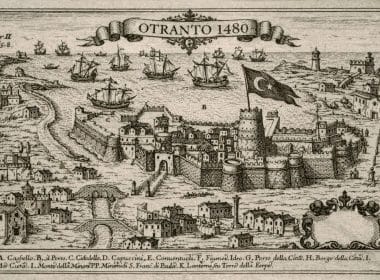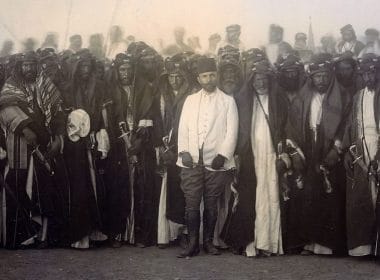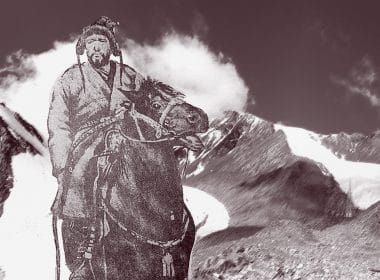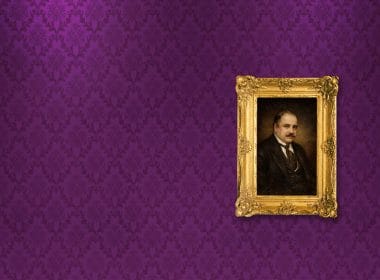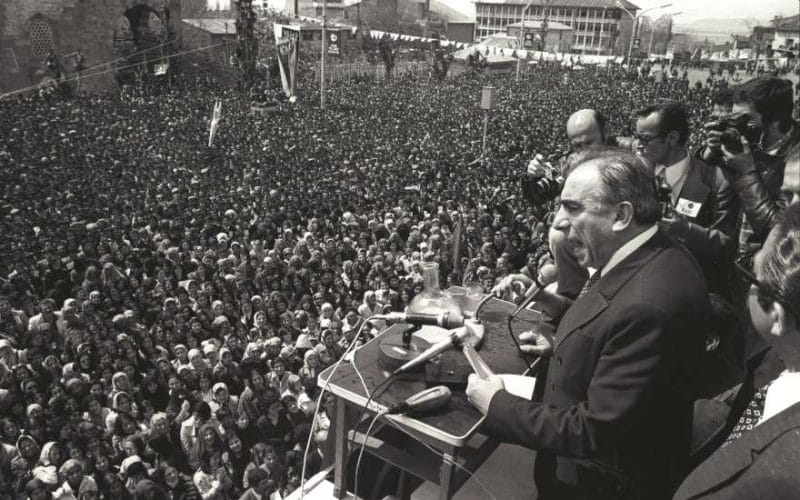Born in Diyarbakır, awakened in Salonika, and exiled in Malta, Ziya Gökalp built the moral architecture of modern Turkiye. A poet, sociologist, and philosopher, he transformed faith into thought, thought into principle, and principle into the living fire of mefkûre – the Turkish ideal.
Bir imparatorluk coğrafyasının doğusunda doğup, batı ucunda fikir dünyasına katılan…
Prof. Dr. Nihat Nirun, Türk Töresi Preface
Ziya Gökalp (born 23 March 1876, Diyarbakır – died 25 October 1924, Istanbul) was the bridge between two worlds — the Ottoman twilight and the dawn of the Turkish Republic. He lived where history itself was being rewritten: a son of empire who became the conscience of a new nation. He grew up in a family of provincial officials and scholars. After studying philosophy and sociology at Istanbul’s Mekteb-i Mülkiye, he was drawn to the ideas of solidarity and collective conscience in French thought — especially Durkheim. But he re-rooted those theories in Turkish soil, seeking a social science that spoke the language of hars, not just medeniyet.
Life and Times
In 1908, as the Ottoman Empire trembled under reform and revolution, Gökalp joined the Committee of Union and Progress (İttihat ve Terakki) — the movement that aimed to restore constitutional rule. Yet even among political revolutionaries, he stood apart: not a man of power, but of principle. He believed that political reform meant nothing without cultural rebirth. For this, he founded the first sociology department in the Ottoman world (at Darülfünun) and became known as “İçtimaiyat Müderrisi” — the Professor of Sociology.
Between 1910 and 1918, in the multi-ethnic port of Salonika, Gökalp’s thought matured. There he encountered Western education, Jewish entrepreneurship, and Balkan nationalism — a world of contradictions that would inspire his synthesis of Türkleşmek, İslâmlaşmak, Muasırlaşmak. He also began writing for the journal Genç Kalemler, where he promoted linguistic purification — the idea that Turkish must shed foreign ornamentation and return to its native clarity.
After World War I, Gökalp was exiled by the British to Malta (1919–1921), where he continued writing, reflecting, and refining his theories. Upon his return, he settled in Ankara and took part in the intellectual groundwork of the new Republic, advising on education, culture, and national identity.
Although Gökalp and Atatürk met only indirectly, their ideas intertwined deeply. Atatürk put into action what Gökalp had imagined: a modern, secular, culturally confident Turkey built on reason and language. Gökalp’s influence shaped the early reforms — from education and civic morality to the founding of the Turkish Language Association’s spirit.
Culture and Civilization
Gökalp redefined the Turkish world through two words: hars and medeniyet.
Hars — the inner spirit of a people; medeniyet — the shared tools of humanity. Civilization, he taught, can be borrowed; culture must be preserved. Thus Turkey could modernize without losing its soul.
He adopted Durkheim’s sociology but gave it Turkish flesh — turning theory into national ethics. For Gökalp, society was not a machine; it was a living conscience bound by belief, custom, and language.
The Triple Ideal
“Türklük, İslâmlık ve muasırlaşmak birbirine zıt değil, birbirini tamamlayan unsurlardır.”
Türkleşmek, İslâmlaşmak, Muasırlaşmak
Gökalp’s vision of national harmony rested on three principles:
- Türkleşmek — to root in our own culture,
- İslâmlaşmak — to uphold the moral unity of faith,
- Muasırlaşmak — to master modern civilization.
He saw these not as opposites but as a trinity — a moral geometry for the modern Turk.To be Turkish, for Gökalp, was not a matter of race, but of shared values and will.
The Poet of the Nation
Ziya Gökalp’s poems are the emotional counterpart to his philosophy — the voice of thought turned into song.
Turan
Vatan ne Türkiye’dir Türklere, ne Türkistan;
Vatan büyük ve müebbet bir ülkedir: Turan!
The homeland for Turks is not Turkey, nor Turkistan;
The homeland is vast and eternal — it is Turan.
A vision of unity, not conquest — a dream of spiritual kinship across lands once joined by language and faith.
Ala Geyik
Bir alageyik gördüm ben ormanda,
Gözleri yıldız, boynuzları ay…
A spotted deer I saw in the forest,
Eyes like stars, antlers like the moon…
A myth reborn — the Turkic spirit in motion, half memory, half revelation.
It binds the shaman’s dream to the philosopher’s thought, reminding us that folklore is philosophy in disguise.
Lisan
Güzel dil, Türkçe bize; başkalar konuşamaz,
En güzel ses, Türk’ün sesidir; kimse duyamaz.
Beautiful language, our Turkish — none can speak it as we do;
The sweetest voice is the Turk’s — none can hear it as we feel it.
Language, for Gökalp, was the soul’s homeland.
He purified Turkish not out of pride, but to return it to its natural music — the sound of belonging.
The Moral Law of the Steppe
“Töre, Türk milletinin vicdanında yaşayan adalet duygusudur.”
Türk Töresi
In Türk Töresi, Gökalp traced justice to töre — the ancient moral law of the steppes.Not written, but remembered; not enforced, but believed.It was the conscience that bound tribe to tribe, ruler to ruled, and later empire to citizen.He believed that töre still breathed beneath the laws of the Republic — the unbroken moral rhythm of Turkish history.
Legacy
“O, doruklarda tutuşup ufku baştan başa aydınlatan ateşler gibiydi.”
Prof. Dr. Nihat Nirun
Gökalp’s 48 years shaped centuries.
He gave Atatürk’s reforms their vocabulary, and a people their purpose.
He purified the Turkish language, gave ethics to nationalism, and soul to modernization.
Ziya Gökalp remains what Nirun called him: the flame on the mountain that illuminated the horizon of a nation.
Sources:
- Ziya Gökalp, Türkçülüğün Esasları (1923); Türk Töresi; Türkleşmek, İslâmlaşmak, Muasırlaşmak (1918)
- TDV İslâm Ansiklopedisi – “Ziya Gökalp” entry
- Prof. Dr. Nihat Nirun, Türk Töresi Preface (1983)
- The Sociological Foundations of Turkish Nationalism (Oxford, 2017)

